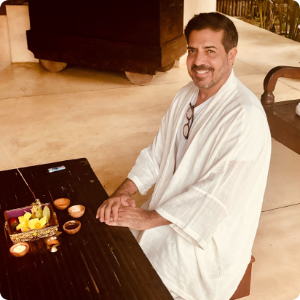The Cornerstone of Forgiveness: An Authentic Apology
Jul 04, 2025
I'd like to share a quote by David Whyte: “To forgive is to assume a larger identity than the person who was first hurt. To mature and bring to fruition an identity that can put its arm not only around the afflicted one within, but also around the memories seared within us by the original blow. And through a kind of psychological virtuosity extend our understanding to the one who first delivered it.”
You see, what this is pointing at is: what is necessary may not be obvious.
There's this idea of the multiple selves which is making its way through the psychology literature in recent years. A multiple self-order. We're so much more complicated than having one single self.
And if that's the reality, let's use it to our advantage here.
True maturity and wisdom lies not in the black and white, but in embracing the grays.
There may very well be part of you, a self of you, a sub-self, which cannot forget, cannot forgive. That self is going to create a kind of immune system of your psychology. Much like how getting exposed to a virus makes you stronger for the future virus.
In a way, that sub-self will protect you from engaging in a detrimental pattern again. But then there's another self that you can employ, the compassionate self. And it's that self who can forgive.
That's what Whyte is talking about: this larger identity than the person who was first hurt. Multiple selves in like a conscious choreography, if you will.
So now we turn to a cornerstone of forgiveness: the authentic apology.
We've all given and received apologies. Some of them are okay, some of them fall short.
But just like forgiveness is a muscle we build, we can also get better at apologizing.
Elements of an Authentic Apology
- Acknowledge what happened. We name it, we give it detail, we actually step through it.
- Express the remorse we have. For it to be authentic, it should have that remorse. Connect with and acknowledge what the other person went through, even if that wouldn't have caused you pain.
- Indicate what steps you’ll take to repair the situation.
When an apology includes these ingredients, nearly any situation can be resolved, even a conflict years or decades in the making. But it must be a genuine apology, and then of course you must also take the steps you’ve outlined to change and repair the situation.
Now, I wanted to address separation versus boundaries because while we're all trying to live life without separation – we're trying to live from and into more love – there is an important distinction between separation and the notion of boundaries.
Boundaries are very healthy and should be employed even after you forgive someone for an action or behavior. Forgiving someone doesn't mean that you need to have an ongoing relationship with them and/or spend your time with them.
Boundaries of course take many shapes, whether they are actual physical boundaries or otherwise. Boundaries are not walls or separations, they're healthy ways to navigate the relations we're in.
Especially when our trust or confidence was breached. Embrace healthy boundaries both before and after forgiving the other person.
And all of this is ultimately to help us to get out of our own way. The more we hold on to stuff that we don't forgive, the more that’s in our way of where we're actually trying to go. So the more we dissolve it, the lighter we'll be on our path.
Isn't that what we all want? Let's not wait. Let's create. Let us create liberation for ourselves and others, because as we’ve said before – on the other side of forgiveness lies freedom.
And that's what I wish for all of you. A life of magnificent freedom. Bring it all to the surface.


